Copper pipes making unknown noises often verify the existence of issues. Banging, popping, and clanking are some of the noises that you might hear. Now, you’re wondering about the solution to stop your copper pipes from making racket? We researched and reached out to experts to give you the following answer.
If you hear unfamiliar sounds coming from your copper pipes, different solutions exist to help fix these issues. Some of the possible fixes are:
- Lower the water pressure in your home.
- Install insulation.
- Replace plumbing fixtures.
Take note that often, the correct method to apply depends on the source of the noise. Keep reading as we talk about the potential causes of these unwanted sounds coming from your copper pipes. We'll also discuss solutions on how to solve specific plumbing issues like the water hammer.
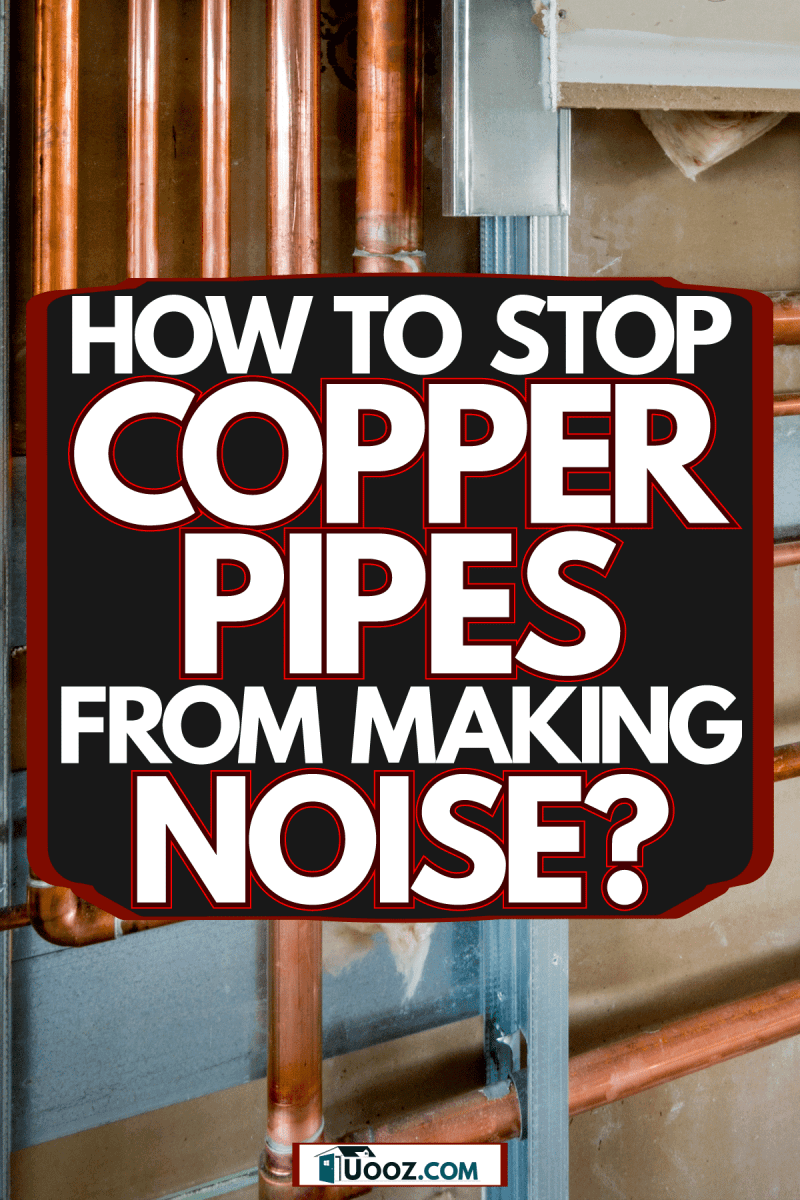
Is It Normal To Hear Your Pipes?
Aside from the sound that water makes when it’s flowing through the pipes, it’s generally not normal to hear other noises coming from your home’s plumbing system. Some of the possible sounds that you might hear are loud bangs, rattles, hums, gurgles, and high-pitched whining.
The specific racket you hear often indicates a particular issue. For example, gurgling from your copper pipes might verify the presence of an issue called a water hammer. If so, continue reading to know the solution to this problem.
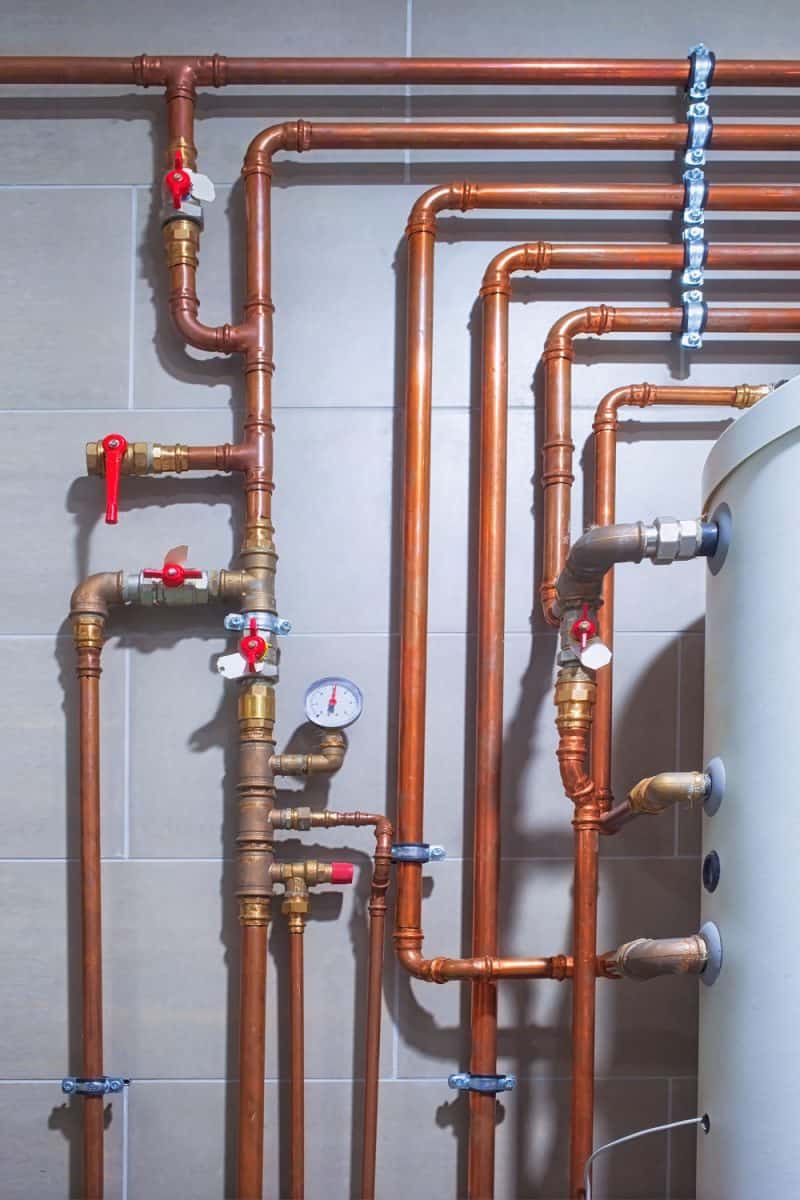
Why Are My Pipes Making Noise When The Water Is Turned On?
The key to troubleshooting plumbing problems, particularly for copper pipes -each time you turn the water on- is to identify the noise coming from the system. Verifying these sounds can help you recognize the source of the problem without breaking down walls or relying on professional help for the time being.
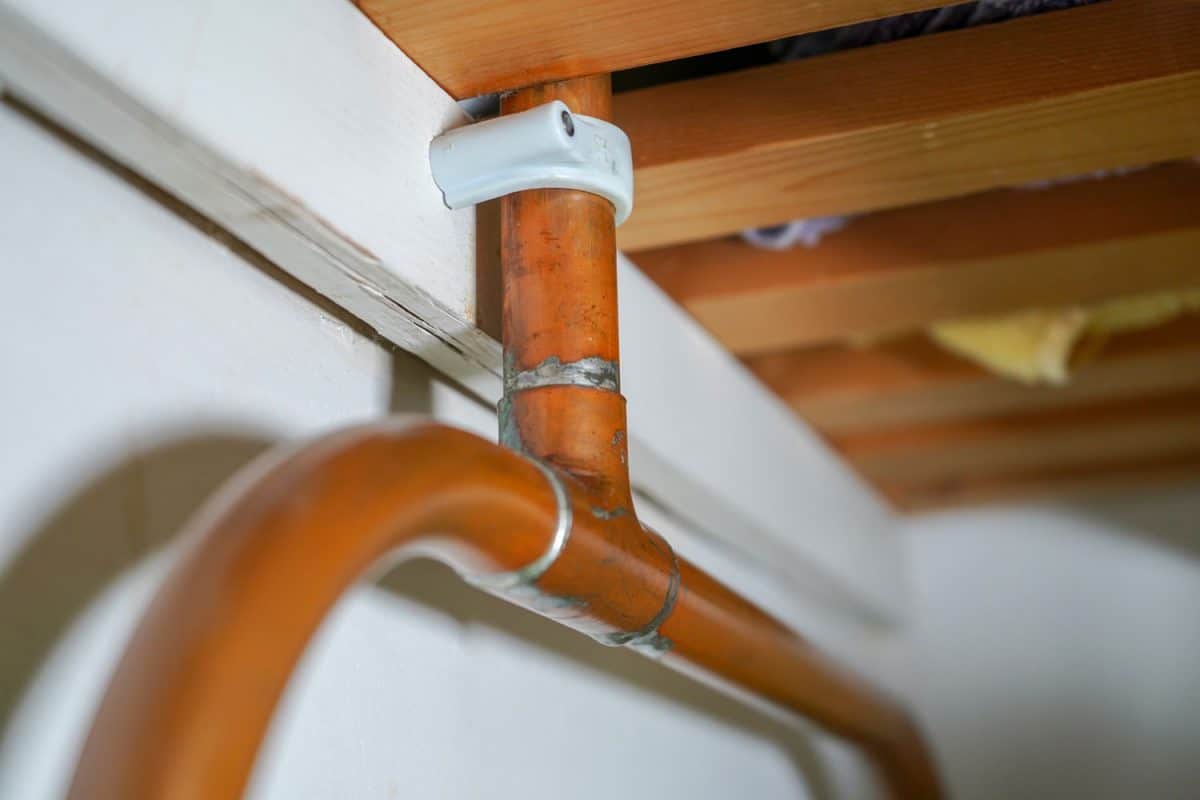
Here are some of the relatively common sounds heard from pipes, along with their potential problems and possible solutions:
Bangs
Banging pipes typically mean faulty or loose anchoring. Pipe anchors help support the movement in plumbing. These parts stop pipes from unnecessarily shifting in three dimensions. Replacing or tightening the anchors may solve these noises.
Check out this steel clamp for pipes on Amazon.
Squeaks
Squeaking noises may come from hot water pipes and is usually not a serious concern unless the racket becomes unbearable. These sounds usually come from the hot temperature expanding the pipe as water goes through the material. Replacing the current piping with better quality products may eliminate or significantly reduce these noises.
Check out these high-impact strength copper pipes on Amazon.
Whines
Whining or whistling from the plumbing may originate near the dishwasher, dryer, or washing machine. Additionally, the potential cause for these rackets is loose washers triggered by the movement generated by the appliances. Over time, the washers will wear down because of the relatively high-velocity motions.
Don’t attempt to repair the washers and replace them instead. These parts are generally inexpensive and shouldn’t hurt budgets significantly.
Check out these bolts and washers on Amazon.
Hums
If you can hear a humming noise from your home's plumbing system that resembles a high-speed car, it generally indicates that the water mains are set to a higher pressure than normal. Make sure to set the property’s water pressure to no more than 55 psi.
You can check the house’s blueprints to search for the water pressure meter, which should be near the mains. Request for the professional help from a certified technician if you can’t find the blueprints or the meter.
Why Are The Pipes Moaning?
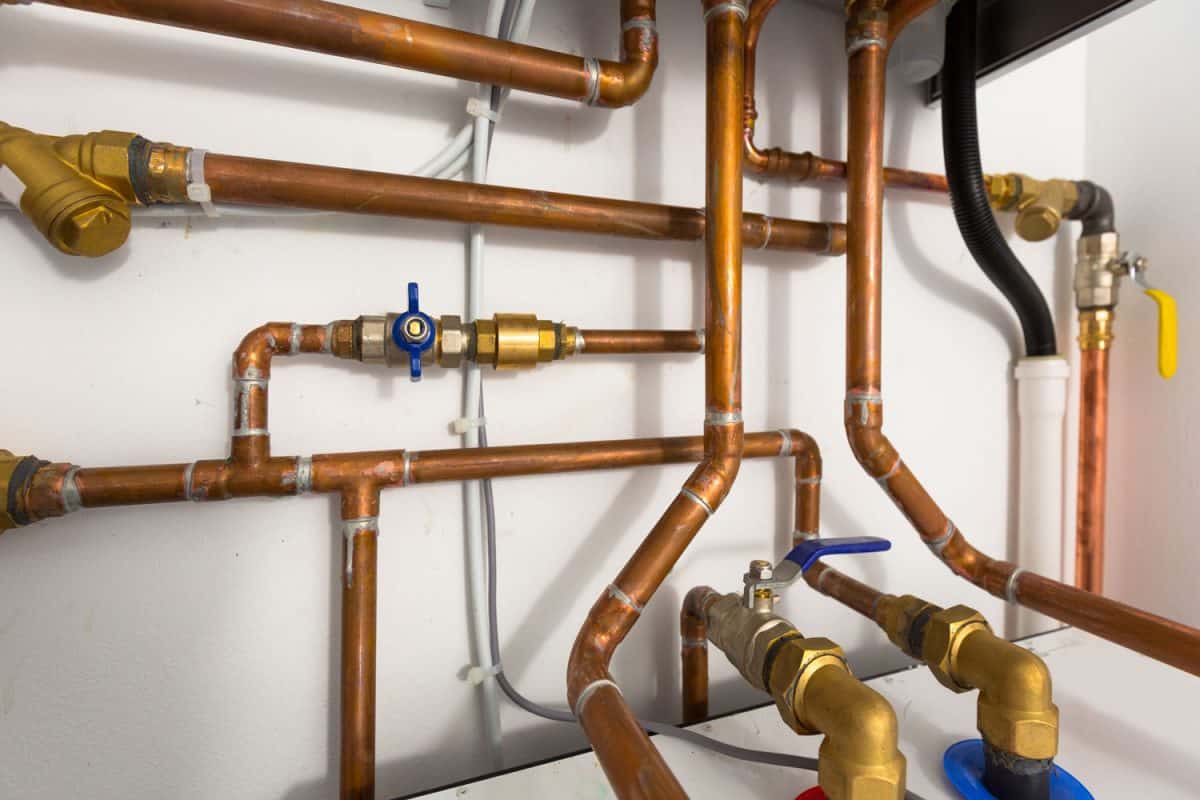
Aside from the noises mentioned in the previous section, moaning or hissing noises may also come from the plumbing. This sound may need you to investigate the hot and cold water lines.
First, turn on the cold water and let the water flow from the faucet. Then, do the same procedure with the hot water. If the sound is only evident from one water line, replace the faulty pipes connected to those systems. Otherwise, replace the pipes on both lines if the hot and cold fixtures are at fault.
What Do Bursting Pipes Sound Like?
Bursting pipes often sound like bubbling or gurgling every time you make water flow through your home’s plumbing. The noise usually emanates from running faucets or flushing toilets. In serious cases, bursting pipes can also sound like loud pops similar to a vehicle’s engine backfiring.
Other signs that signify a burst pipe are:
- Sewage smell seeping from the plumbing fixtures
- Water puddles or stains from walls and ceiling
- Sinkholes in the garden
- Water not flowing through baths, faucets, and showers
Burst pipes can be a serious issue because they can cause significant water damage across your home. Watch the video below to see how a burst pipe occurs and the possible damages resulting from the incident:
Also, read our post on the things you need to know about PEX pipes freezing and bursting for you to prevent these incidents.
How Do You Quiet Copper Pipes?
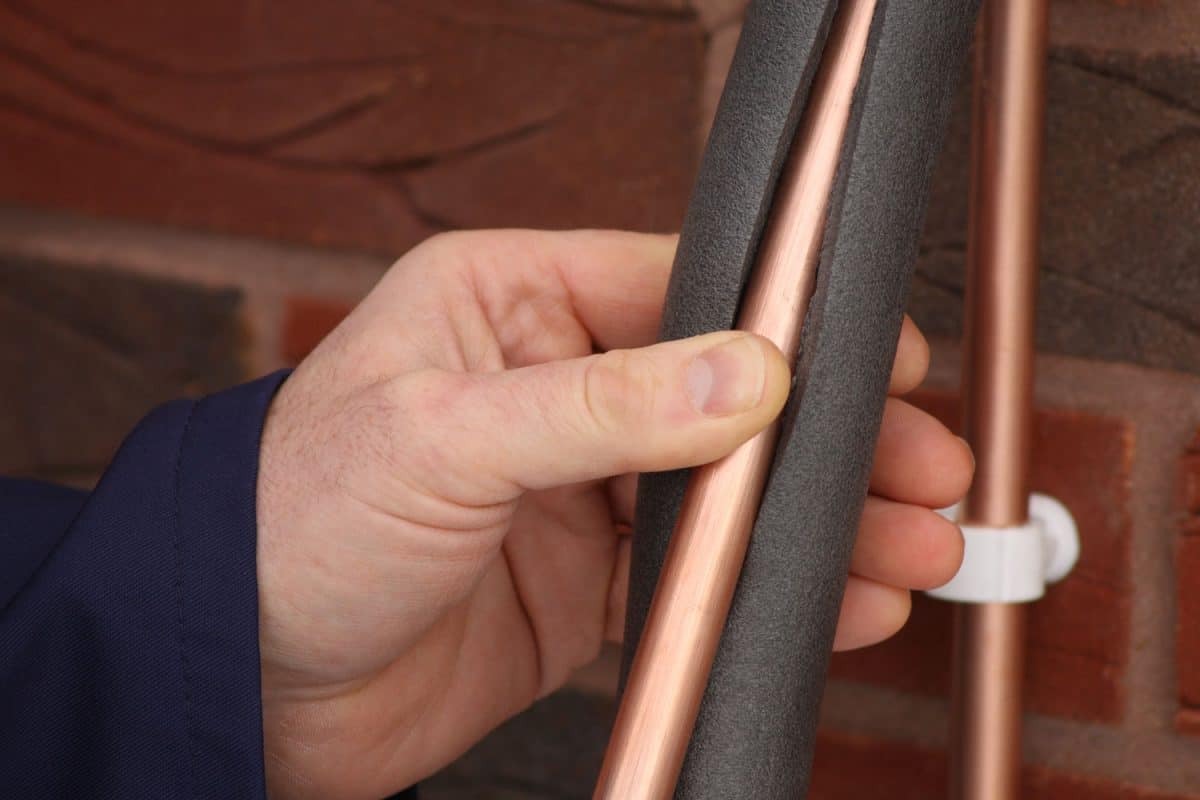
Different methods exist to help reduce the noise coming from copper pipes when water runs through them. Here are some of those techniques:
- Reduce the water pressure from your property’s main water supply.
- Install insulation over the offending pipe. Then, secure it with a bracket to reduce unwanted motions.
- Replace the washer or faucet valve seat.
Keep in mind that copper pipes often make some amount of noise because of the metal. Copper has some degree of flexibility as it expands when it gets into contact with hot water. In turn, the copper plumbing fixture may rub against the other surfaces, causing unknown noises to emanate.
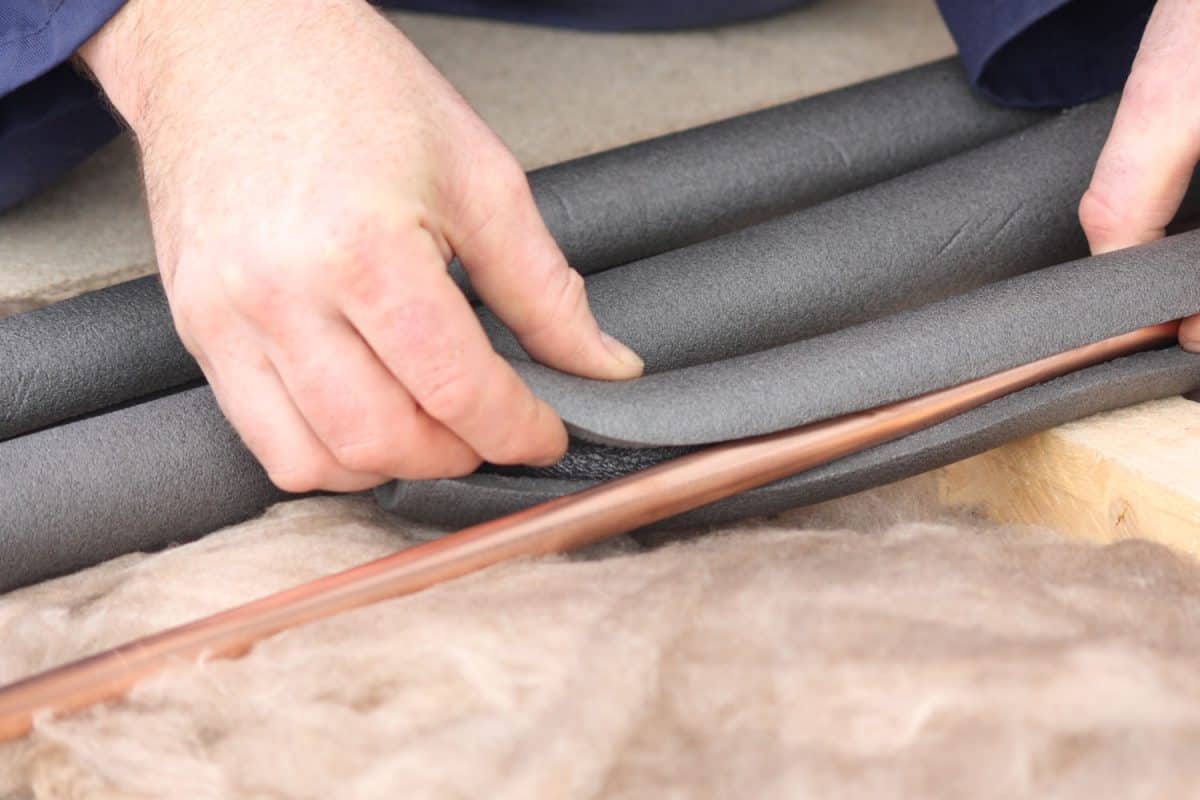
However, the copper pipes should revert to their original sizes after a while. You can limit these sounds by using the steps mentioned above.
You can also watch the quick video below for additional information about the steps mentioned above:
Additionally, you may want to install a pressure-reducing valve, particularly when you hear banging noise each time you turn on a faucet. Make sure to acquire and install a model that sets the water pressure no higher than 60 psi.
But if your copper pipes are quite old, think about replacing them with a long-term solution. Read our post about the lifespan of copper pipes for more information.
Check out this pressure-reducing valve on Amazon.
How To Stop Water Hammer?
Water hammer happens when pipes bang or thud because the water slams into the valves as the connected tap shuts off. Failure to solve this issue will make water replace the air in the plumbing, causing severe to irreparable damage to the valves.
You only need about 10 minutes of your time to fix a water hammer concern. Plus, you don’t need any special tools for this task. Here are the steps to do it:
- Cut off the water supply from your home’s main shut-off valve.
- Open all the faucets, showers, and other water outlets in your home to drain the pipes completely.
- Restore the water supply by turning on the main valve again.
If the water hammer issue persists, you may need to check your home’s plumbing supply lines. The pipes might not be secure, and fortifying their connections may help solve the problem. Otherwise, call a certified plumber to assist in solving this concern.
How Do You Bleed Air From Water Pipes?
A significant amount of air can enter the pipes, causing the water to sputter when you turn on an outlet like a faucet. Bleed the air out of the plumbing to prevent risks of significant damage.
Take note that you need to turn on every water outlet in the property for this operation to work. Therefore, if you live in a fairly large home, you may need some assistance from other people.
Start opening the water outlets from the top of the house and work your way to the bottom. Don’t forget the showers and tubs in different bathrooms. Also, turn on the hoses and taps in your garden. Once the sputtering ends, turn off the water pipes one at a time. However, start from the bottom and work your way up this time.
The video below also has some extra tips to help you with this operation:
Final Words
Stop or significantly reduce the noise coming from copper pipes by first determining the type of sound you hear. You can then apply methods like lowering the water pressure from the mains or installing insulation around the pipes. Make sure to match the solution with the noise you hear to avoid wasting money and time on the repairs.




